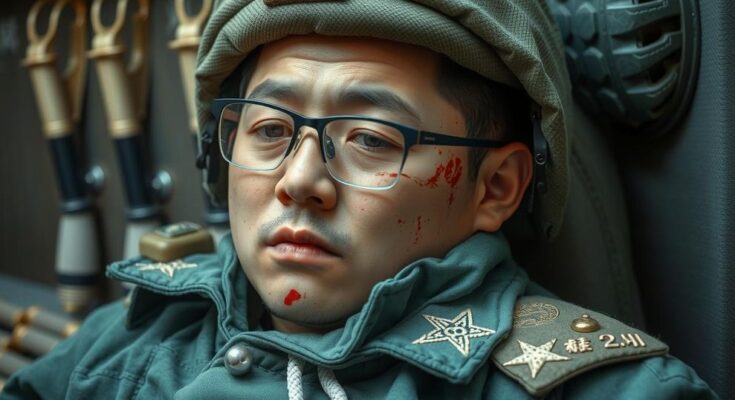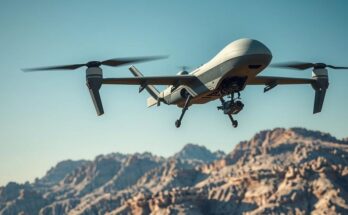South Korea’s NIS confirmed the capture of a wounded North Korean soldier in Kursk, amidst reports of thousands of North Korean troops supporting Russia in the Ukraine conflict. This incident raises potential implications for asylum requests and invites scrutiny on North Korea’s military involvement in foreign conflicts, particularly in Ukraine.
TAIPEI, Taiwan – South Korea’s National Intelligence Service (NIS) has confirmed that a wounded North Korean soldier was captured alive in the Kursk region of Russia. This confirmation follows the emergence of a photograph released by Ukrainian media, which purportedly depicts the soldier in custody. There are reports suggesting that as many as 12,000 North Korean soldiers have been deployed in Russia to assist in its military operations against Ukraine, with Ukraine citing over 3,000 casualties among these troops. In contrast, South Korea estimates that at least 1,100 North Korean soldiers have been either killed or injured during their deployment.
According to the NIS, real-time information sharing with allied intelligence agencies facilitated the confirmation of the soldier’s capture. The NIS stated, “We have confirmed that one injured North Korean soldier has been captured,” and indicated they would continue to monitor the situation closely. This development marks a potential first for Ukraine, as Ukrainian forces reportedly carried out operations resulting in the capture of a North Korean soldier allied with Russian forces. Details regarding the time of capture remain unspecified, and further assessments regarding the soldier’s health and status are pending.
During an October parliamentary session, the NIS suggested that the South Korean government maintain operatives in pertinent regions to assist North Korean soldiers contemplating defection. When questioned about the protocol for handling defectors, the NIS asserted, “Under international and domestic law, South Korea must accept the request for defection.” They emphasized the need to respect the wishes of individuals desiring to leave North Korea while considering the geopolitical implications.
Neither President Vladimir Putin nor North Korean leader Kim Jong Un has publicly acknowledged the involvement of North Korean troops in the conflict. However, Ukraine has presented various forms of evidence, including a soldier’s notebook detailing drone countermeasures and a letter found with a deceased North Korean soldier. Moreover, reports have surfaced of Russian soldiers critiquing the conduct of North Korean troops, alongside accusations by President Volodymyr Zelenskyy regarding efforts to conceal the extent of North Korean troop deployment by burning the remains of deceased soldiers.
The ongoing conflict between Russia and Ukraine has seen the involvement of various foreign military contingents, including North Korean troops. Reports indicate that North Korea has dispatched thousands of soldiers to Russia, purportedly to bolster Russian military efforts against Ukraine. The South Korean National Intelligence Service is actively monitoring the situation, particularly with regard to soldiers who may seek asylum or may become captured during their engagements on behalf of Russia. This incident involving the captured North Korean soldier is significant as it raises questions about North Korean military operations abroad and the implications for South Korea, particularly concerning potential defectors.
In summary, the capture of a wounded North Korean soldier by Ukrainian forces in Russia’s Kursk region marks a notable event in the ongoing conflict. South Korea’s NIS has confirmed the soldier’s capture and is prepared to handle any subsequent requests for asylum or defection, adhering to legal obligations. This incident underscores the increasing complexity of the geopolitical landscape as North Korean soldiers engage in the conflict against Ukraine, raising concerns and scrutiny regarding international military relationships and dissociative prospects for individuals seeking to escape North Korean influence.
Original Source: www.rfa.org




